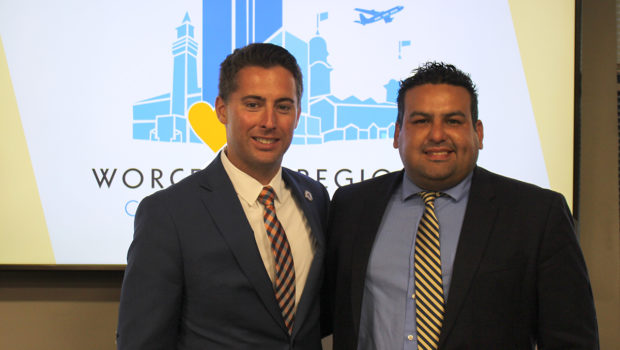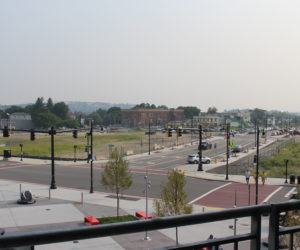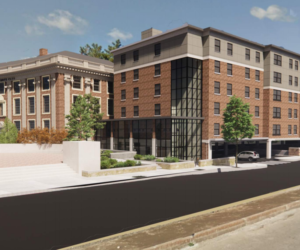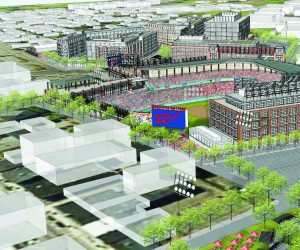There’s a drought in the Commonwealth, but it’s not due to a lack of rainfall.
Housing is among the top priorities for communities from the Berkshires to Central Mass, MetroWest to downtown Boston. Yet today’s current volume is lagging behind the Commonwealth’s growing population and may become a deterrent to economic expansion locally.
“Folks can’t afford to live in the core of Boston. We don’t want that to become our [city’s] future,” said Alex Guardiola, Chamber director of government affairs and public policy.
To help connect Chamber members with state legislators, on Tuesday, the Worcester Regional Chamber of Commerce invited Sen. Brendan P. Crighton, D-Third Essex, to a joint, closed-door Construction and Real Estate and Business and Government roundtable. Therein, he led a conversation among 40 Chamber members concerning a slew of bills seeking to address the need for housing, its affordability for Massachusetts residents, and any solutions being debated on Beacon Hill.
Given the lack of available housing units and the rising cost of rent in Gateway Cities such as Lynn, the senator’s hometown, along with Worcester, employers and business organizations are encountering a hurdle when it comes to recruiting, retaining, and incubating local business.
A question and answer session began when one attendee asked Sen. Crighton if anything could be done to increase “home rule” independence – allowing towns and cities to decide a new regulation for themselves despite what’s laid out in Commonwealth law.
While the bill nearly made it to the “finish line,” last session said Sen. Crighton of the Governor’s Housing Choice Initiative, currently under debate at the Massachusetts Statehouse, “It’s not going to be a layup at all. There are already people coming out against it.”
Concern, he added, is often founded in ideas of influx. If a multi-family housing complex were developed to address local need, an idea he supports, some believe the community’s schools and public services would flood the status quo which is already stretched to capacity.
In New England, where land is a premium and the population is growing, regional regulations requiring certain plot sizes, Sen. Crighton cited one unnamed community with a two-acre minimum, are not helping to mitigate the need for additional housing.
“There has to be a little more willingness to consider [multi-family] projects” especially in towns and cities investing in transportation infrastructure, he explained. “But that’s a deal-breaker for many folks” concerned about the number of people, especially families with school-aged children, who purchase that model of housing.
Inventory of single-family homes in Worcester is similarly hard to come by, said City Councilor George Russell, himself a landlord of multi-family homes.
Calling for new builds, he said: “Business would be a lot better if we had something to sell.”
He admits there is “some” land available for development in the city but classified it as “difficult” to build on saying “there’s a reason it wasn’t [used] before.”
Following national housing trends and researching “accessory dwelling units” – renovated garages and tiny homes, for example – Clayton Williams said he doesn’t need a 1,000- or 1,500-square foot house to live comfortably.
“I would be totally fine with a converted garage or shed,” he said.
As the director of planning and sustainability at Eastland Partners in Hopedale, Mr. Williams said such offerings would “help retain young people” while “maintaining the character of existing neighborhoods.”
These new trends have been “a big part of the conversation” said Sen. Crighton and could be a larger part of the solution in cities like Worcester seeking to find ways to grow and invest in the next generation of its workforce.
Housing, as an economic driver, will be the focal point of the Chamber’s upcoming October Game Changers event. Follow along as the Chamber leads up to the reveal of our three-part housing study at the half-day conference.
Emily Gowdey-Backus is the director of communications with the Chamber. She can be reached via email at egowdeybackus@worcesterchamber.org.





